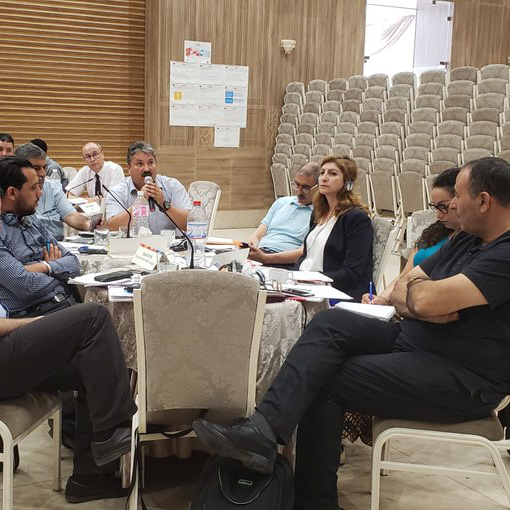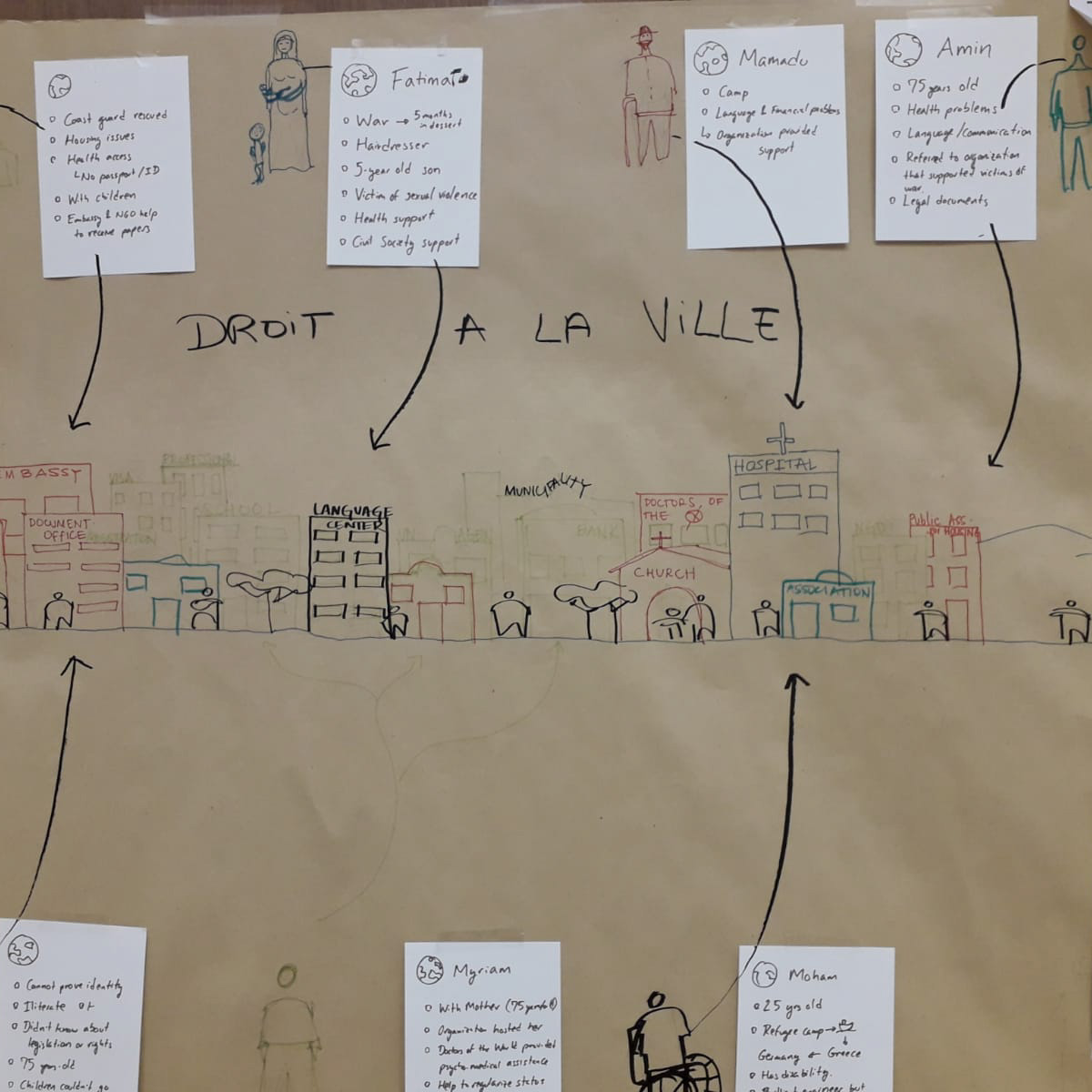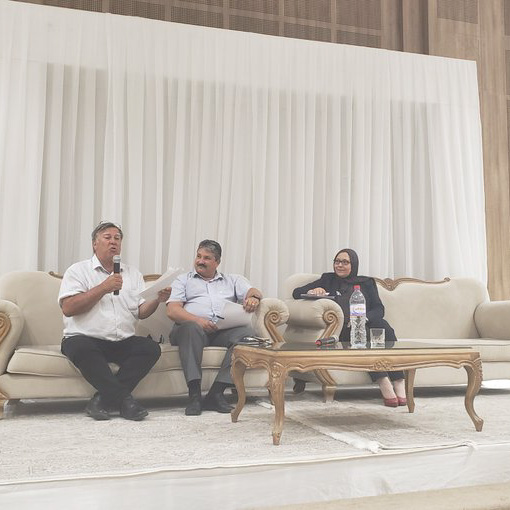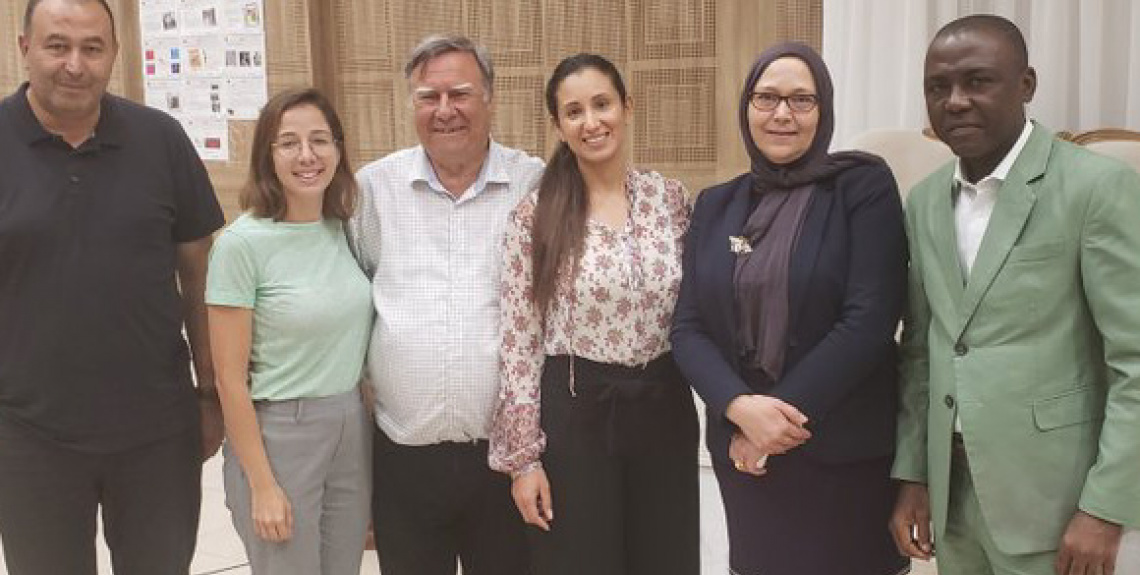Source: UCLG
On 25 and 26 June, the Mediterranean City to City Migration (MC2CM) project brought together more than seventy participants in a peer learning event on mechanisms for cooperation between local governments and civil society in the field of migration. More than twenty cities attended this sub-regional meeting in Sfax accompanied by a dozen civil society organizations and as many representatives of international organizations.
For the first time in the framework of dialogue that works on the priorities of decentralized cooperation in the MC2CM project, the subregional event held in Sfax brought together a group of civil society representatives closely involved with the work of cities in the field of migration. Over two days of activities and discussions, participants reflected together on the importance of articulating in a coherent and solid manner the shared objectives of all actors involved in the protection of the Right to the City of migrants.
Five sessions and one technical visit explored the opportunities and challenges of working together with actors from organized civil society at the local level. On this matter, several cities highlighted impact of insufficient municipal competences in the field of migration and the obstacles imposed by the lack of decentralization in certain Mediterranean countries. In this respect, collaboration with civil society appeared as an opportunity for cities to assist and accompany migrants at all stages of the migration process. On the other hand, cities also emphasized the role of civil society in building spaces of trust, especially in cases where irregular situations alienate newcomers from government institutions for fear of reprisals.
In addition, participants learned about multi-stakeholder cooperation in the city of Sfax, where few years ago there were four organizations working in the field of migration. Today, there are more than forty. Among the entities active in the territory, the city of Sfax showed the examples of Tunisie Terre d'Asile and Caritas as organizations that allow them to pursue objectives that municipal competences and resources in areas like reception or emergency situations would not achieve within the current legal framework.



These two organizations also underlined the role of cooperation not only with the city, but also among themselves. In this regard, the various organizations working in the territory have developed a mechanism for accompanying migrants that allows for coordination to avoid overlapping functions and optimize resources.
Similarly, cities such as Brital (Lebanon) or Douala (Cameroon), and civil society actors like the Moroccan Association for the Integration of Migrants (Spain), AKS (Libya), Asticude (Morocco) or the Network of Intercultural Cities of Morocco, presented their practices on local cooperation in the field of migration.
This subregional event was held consecutively with meetings with the cities of Sousse and Sfax, new members of the MC2CM project, for the elaboration of their migratory profiles, in which civil society was also present and contributed with its proposals and experiences. Two other meetings took place in Rabat and Casablanca on 1 and 2 July.
Peer learning sessions will continue virtually with a webinar on children in urban migration governance on 31 July. The next peer learning event is scheduled for September and aims to bring cities together around the issue of homelessness.


